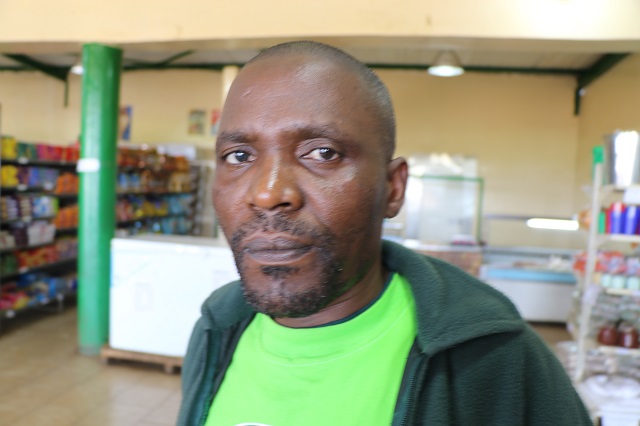EDITORIAL COMMENT: Reopening of Mpilo cancer unit cause for celebration

Cancer now ranks among the biggest causes of morbidity and mortality in our country with around 5 000 new cases being recorded and 1 500 deaths annually.
For many, a positive diagnosis to cancer amounts to a death sentence as the disease is very difficult to manage and expensive to treat. Activists say cancer is becoming more problematic to handle than HIV and Aids for which treatment is more widely available and affordable yet that for cancer is costlier. For these reasons and more, the activists have suggested the disease be declared a state of disaster so that more resources can be marshalled towards fighting it.
The cases have been increasing over the past decade and that is worrying. The Zimbabwe Cancer Registry says in 2011, recorded cases were 5 553, while in 2012 cases stood at 6 107 before escalating to 6 548 in 2013.
The most frequently occurring cancers among all races in the country are cervical cancer with 18 percent, Kaposi sarcoma (10 percent), esophageal (nine percent), prostate cancer (seven percent), non-Hodgkin’s lymphoma (six percent), colorectal cancer (four percent) and breast cancer (seven percent).
Like HIV and Aids, cancer affects the most productive age group, the 30 to 70-year-olds.
The Ministry of Health and Child Care estimates that it costs between $3 000 and $4 000 for a cancer patient to go through the whole session of radiotherapy. Chemotherapy costs between $100 and $1 000 per cycle depending on the stage of progression of the disease. Also, a patient needs a minimum of six cycles, running up to 12.
For many patients, these costs are prohibitive and what they only have to do is, which is very, very sad, to wait for their time.
But we see a good amount of work by stakeholders to make health facilities more available and accessible to those in need of them while awareness programmes are ongoing to reduce risk factors for those not suffering from the disease yet.
It is in this connection that the Government has mobilised resources towards the re-opening of the cancer unit at Mpilo Central Hospital.
The facility to reduce treatment costs for patients in Matabeleland region and Masvingo and Midlands provinces was recently licensed and the relevant ministry is expected to commission it for patients to get the service they desperately need.
“We got our licence on the 1st of March from the Radiation Protection Authority of Zimbabwe and we are ready to start serving members of the public.We finished painting the radiotherapy department to avoid radiation leakages,” Acting Mpilo clinical director Dr Xolani Ndlovu told The Chronicle on Wednesday.
“So far we are left with securing quality control equipment which we need before we can open it up. We have installed the main machine for the unit and since there are specifics for the other machine, we are working towards that as well. By the end of this week we will be done with everything.”
It has taken 17 long years for that to happen. Many have suffered as a result of failure to travel as regularly as they should to Harare and neighbouring countries to access treatment. Many may actually have lost their lives over the years when the unit at Mpilo was out of service. Thus, the reopening of the cancer wing, likely by today as Dr Ndlovu said, is a cause for celebration.
We expect the Government to speedily give the go-ahead for the Mpilo Cancer Unit to start work. But before doing that, the ministry must obviously have conducted a thorough inspection of the unit and be satisfied that it is safe for it to operate without the risk of causing more cancer cases if radiation leaks from it.
Now that the country has two units at public health facilities – in Harare and Bulawayo – we expect more patients to access the services easily and incur fairer charges for that.
The Government needs to build more such facilities in other parts of the country to offer diagnosis and treatment services. Early diagnosis is particularly critical for cancer. If the disease is detected early on, the patient can be put on medication which can actually prevent its progression to terminal stages.
Late diagnosis often results in much sickness and death. With public cancer units in the other eight provincial centres, more people can access more regular screening and treatment.
However, treatment is only a part of the country’s fight against cancer. There are more cost effective strategies that can be put in place to limit the occurrence of cancer. We are aware that other types of the disease aren’t preventable but there is much that can be done, and must be done, with regard to the preventable ones.
Some of the strategies entail lifestyle changes. Our people need to consume less tobacco, alcohol and unhealthy foods. If they can, they must completely stop smoking and drinking alcohol. They must exercise more and eat healthy foods. These include the traditional ones that many of us tend to shun these days. We also need to eat less of fatty and refined foods or none at all.
Furthermore, cancer cases can be reduced if people are vaccinated against human papillomavirus (HPV) and vaccination against hepatitis B virus so as to prevent cervical and liver cancer, respectively.











Comments